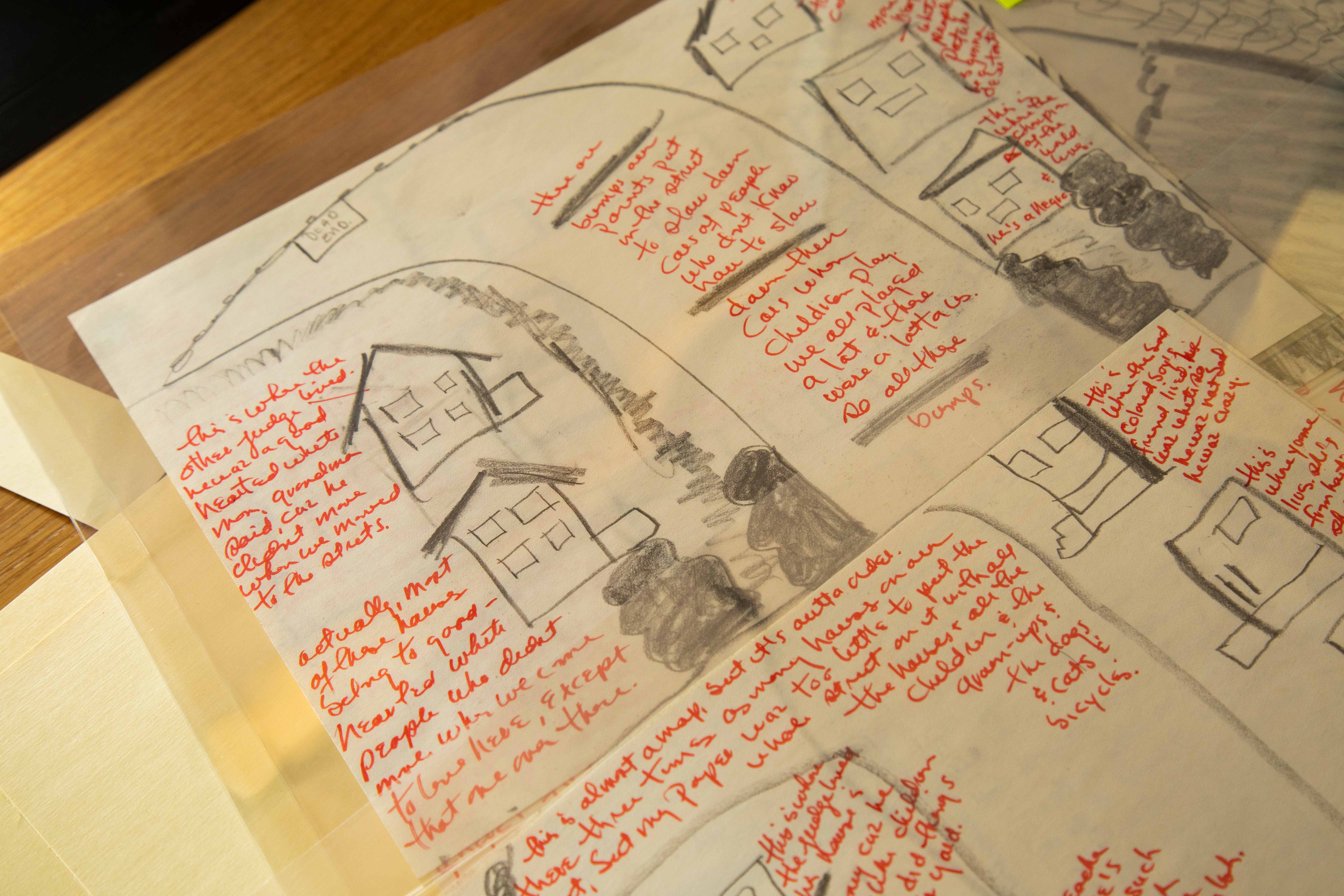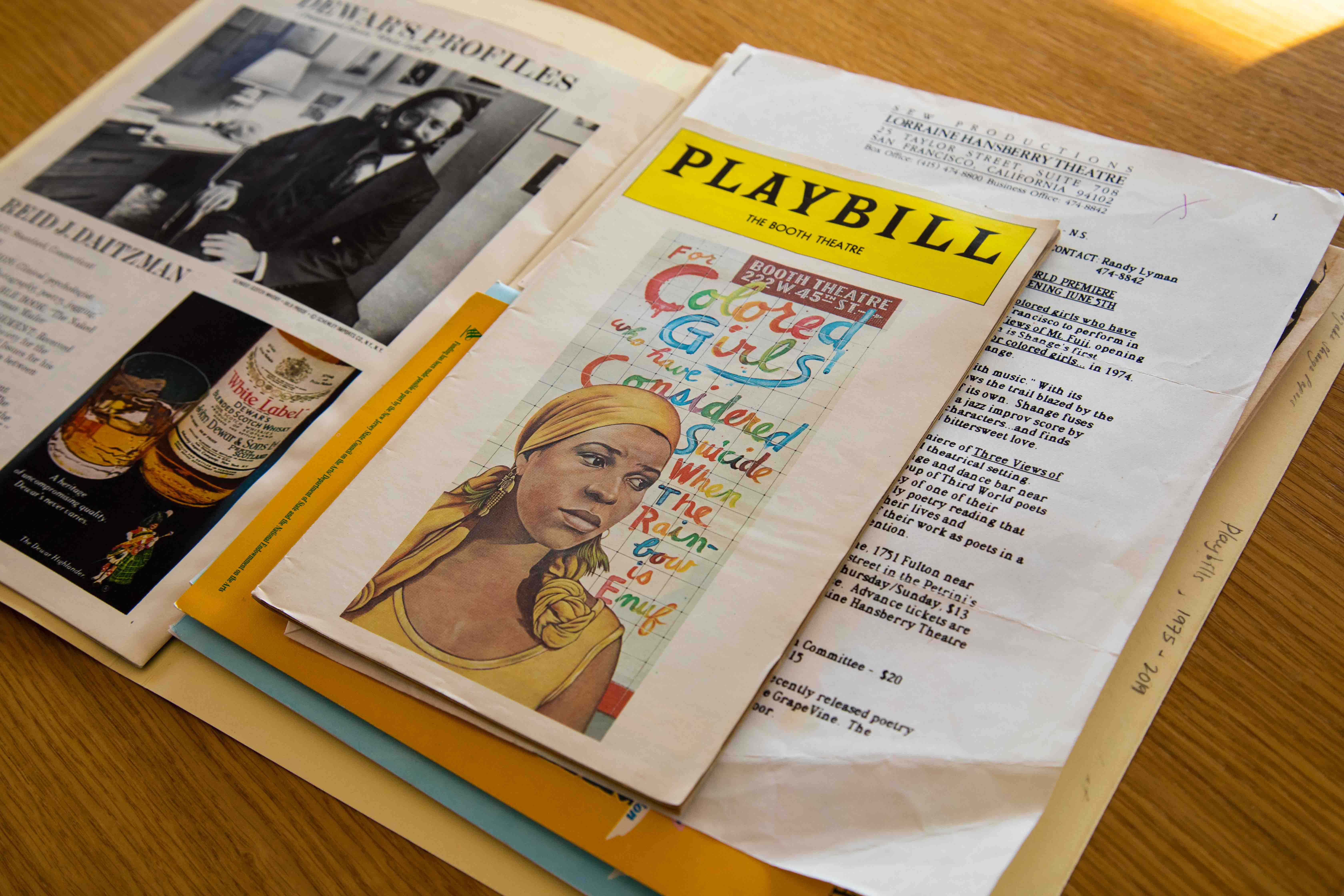The staff of the Archives and Special Collections are thrilled to announce a major addition to the Ntozake Shange (BC '70) Papers. This addition provides a window into Shange’s creative process and the publishing industry, Shange's work as a teacher, and Shange as a sister, mother, daughter, and friend.
Ntozake Shange (1948-2018) graduated from Barnard as Paulette Williams in 1970. Best known for the Obie award winning choreopoem, for colored girls who have considered suicide / when the rainbow is enuf (1976), her oeuvre was astonishingly wide and varied, including more than fifteen dramatic pieces, five novels, nineteen collections of poems, three collections of essays, three anthologies, five children’s books, and countless individual poems. Working in the wake of the Civil Rights, Feminist, Black Arts, and the Gay and Lesbian Liberation movements, Shange sought out and collaborated with influential figures in Black dance, music and activism. These experiences were central to her development of the choreopoem, a unique fusion of poetry, music and movement.
The Ntozake Shange Papers are a signature collection of the Barnard Archives. An initial set of papers donated by Shange in 2016 built on a long relationship between the Shange and the college (particularly students and faculty in Africana Studies), notably including a major conference hosted by the Barnard Center for Research on Women and an issue of the Scholar & Feminist Online journal engaging with Shange's work.
In a video celebrating the first donation of her materials, Shange speaks on the importance of donating her collection to Barnard:
I came of age as a feminist at Barnard...all of my coming of age, politically, happened here. Emotionally and intellectually, it happened here. I formed the basis of my critical thinking, and I thought that my archives belonged here... I’m grateful to Barnard for giving all of these things that are precious to me a home, and for allowing young scholars of color, young women of color, to find antecedents. And I just wanted to leave something here so the girls would be able to look at what life at Barnard, as a Black girl, can become for you, and what you can do with what you get from Barnard.
These papers formed the basis of Professor Kim Hall's Worlds of Ntozake Shange course as well as the Shange Magic project, carried out by collaborators in the Archives, Africana Studies, and English department in the two years following Shange's passing in 2018 to celebrate and share her legacy.
In the summer of 2021, Barnard acquired an addition to the collection from the Ntozake Shange Trust. This addition includes unpublished manuscripts; annotated drafts of works including for colored girls..., Spell #7, If I Can Cook/You Know God Can, Some Sing, Some Cry, Dance We Do, The Love Space Demands, and the Lizard Series; unproduced teleplays; personal journals and notebooks; artwork by various artists; correspondence; family photographs; records related to Ntozake’s research and career as an educator; books and storyboards created by Shange; and dance notation and choreography; among much, much more. This addition roughly doubles the size of the existing collection and provides researchers with an unprecedented window into the life and work of Ntozake Shange. The addition was processed by Kaya Alim '22 and Martha Tenney, and an updated finding aid is available.
In order to make an appointment to work with the Ntozake Shange Papers, please contact the Barnard Archives and Special Collections.

